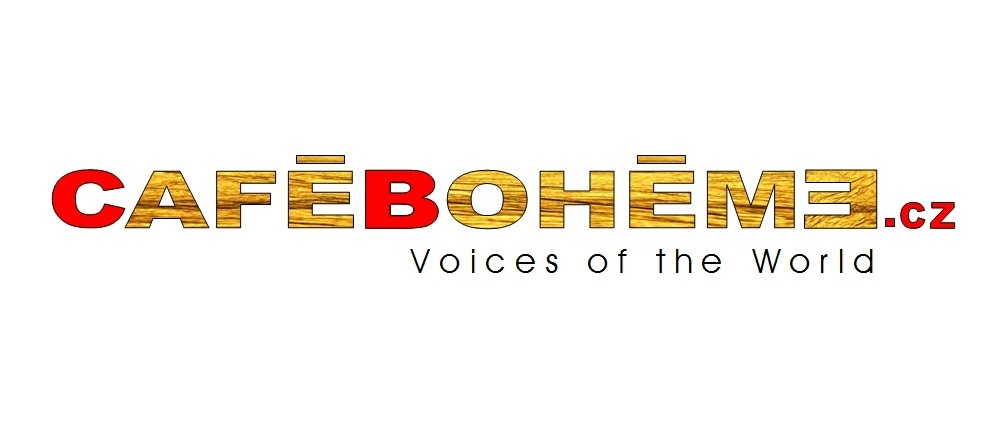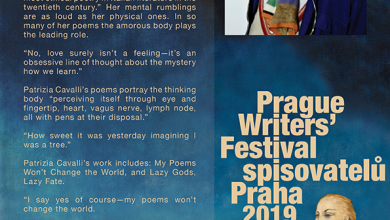
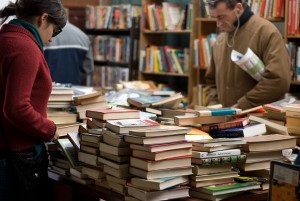 In every city in the world there are places, where as soon as you enter the doorway, it seems as if time has stopped, or that it runs somewhat differently to outside. These are often historical cafes, tea houses, small shops, craft shops… Closed spaces in which you feel a different energy, places of everyday life, rich in history, which stand out from all others due to a unique atmosphere that characterizes them, places which more than others seem to possess “a soul”.
In every city in the world there are places, where as soon as you enter the doorway, it seems as if time has stopped, or that it runs somewhat differently to outside. These are often historical cafes, tea houses, small shops, craft shops… Closed spaces in which you feel a different energy, places of everyday life, rich in history, which stand out from all others due to a unique atmosphere that characterizes them, places which more than others seem to possess “a soul”.
Prague is particularly rich in these places, and alongside the smoky pubs and cafes that have made it famous, there is another category of enclosed spaces that make this city unique – its antiquarian bookstores.
When entering one of these places you are immediately transported to a different dimension. An innate respect for knowledge, the scent of old paper combined with the dust that over time has inevitably settled on the pages of the books, along with the light moisture, due to the particular characteristic of paper to absorb, create an atmosphere in which you remain in an almost religious silence, similar to what can be observed in places of worship.
In these small museums of human knowledge disseminated throughout the streets of Prague you can find everything, and not just in Czech language. Many antiquarian bookshops actually have a rich selection of foreign volumes, especially Russian, English, French and German, but one will be surprised at just how much Italian content there is too. Once these books were found in the private libraries of this country, before they ended up in the antiquarian book stores, ready for a new phase in their existence in the hands of other readers. In the Prague libraries, it has been possible to find precious early Italian editions from the twentieth century, often with an inscription and signature from authors such as Pirandello, Aleramo, or Boccioni.
find everything, and not just in Czech language. Many antiquarian bookshops actually have a rich selection of foreign volumes, especially Russian, English, French and German, but one will be surprised at just how much Italian content there is too. Once these books were found in the private libraries of this country, before they ended up in the antiquarian book stores, ready for a new phase in their existence in the hands of other readers. In the Prague libraries, it has been possible to find precious early Italian editions from the twentieth century, often with an inscription and signature from authors such as Pirandello, Aleramo, or Boccioni.
These pearls are still available, albeit increasingly rarely, when browsing among thousands of pieces, some neatly arranged and divided by genre on the shelves, with others piled up and waiting to be stacked. The real fans jealously guard the secrets to make their findings and often also good business deals.
Most of the books available on average in these small treasure chests of knowledge were published between 1900 and 1960, but there are also bookshops specializing in art volumes, first editions and ancient tomes in general. Many of these have nice and rich collections of bookplates, whose business in the Czech Republic is particularly alive.
The “boom” of antique booksellers took place immediately after the end of communism, when people could finally read all the literature that was banned during the regime. Before 1989, in Prague there were just a dozen dealers of old books, a number which grew exponentially in the years immediately following 1990.
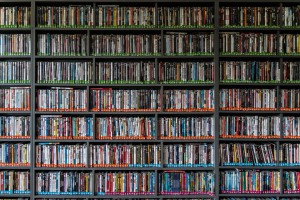 The book culture and reading habits are very well established in the Czech Republic. It is enough to see the number of public libraries in function in the country, and how many users attend, but to get a rough idea you only need to look around in the metro or in public spaces to realize that the Czechs really love to read. According to Jiří Trávníček, author of an essay on the relationship between the Czechs and reading (“Čtenáři a internauti: obyvatelé České republiky a jejich vztah ke čtení”), 6.5% of the Czech population enjoy more than 50 books a year, and the general average of the population touch the figure of 17 per capita. These numbers speak for themselves: the people of this country are among those in the world who read the most.
The book culture and reading habits are very well established in the Czech Republic. It is enough to see the number of public libraries in function in the country, and how many users attend, but to get a rough idea you only need to look around in the metro or in public spaces to realize that the Czechs really love to read. According to Jiří Trávníček, author of an essay on the relationship between the Czechs and reading (“Čtenáři a internauti: obyvatelé České republiky a jejich vztah ke čtení”), 6.5% of the Czech population enjoy more than 50 books a year, and the general average of the population touch the figure of 17 per capita. These numbers speak for themselves: the people of this country are among those in the world who read the most.
“The Czechs – Trávníček writes in his essay, – represent 0.6% of the world population, but our annual publishing production amounts to 1.76% of the number of books that are produced in a year all over the planet”.
Although the numbers have decreased slightly in recent years, due to the economic crisis, 79% of the Czech population “consumes” at least one book a year, and each one dedicates an average of least 38 minutes a day to this activity, while on average he or she would buy five books in one year. In addition, the average number of volumes owned by each Czech in domestic libraries reaches the figure of 245 titles (source: Čtenář 2010).
This data justify the large number of bookshops in the Czech cities, especially in Prague, both those who 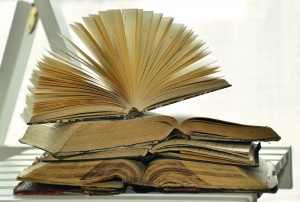 sell new editions, and antiquarian libraries. Regarding the latter, in the city of Prague there are about 60 (compared to about 150 across the country, 2010 data), of which at least twenty are in the district of Prague 1. The reason is simple, in the centre the largest number of potential customers circulates, including tourists, who are often drawn to this type of shopping culture.
sell new editions, and antiquarian libraries. Regarding the latter, in the city of Prague there are about 60 (compared to about 150 across the country, 2010 data), of which at least twenty are in the district of Prague 1. The reason is simple, in the centre the largest number of potential customers circulates, including tourists, who are often drawn to this type of shopping culture.
Even ten years ago, the number of antiquarian booksellers around Prague was almost double what it is today. Many have closed down, not particularly because the Czechs read less, but due to the fact that not all of them wanted to adapt to contemporary changes that have also affected the way of reading in recent years, namely the internet, e-shops and the advent the E-book.
Those who were willing and able to adapt had to radically change the appearance and soul of the store of used books. Today many antique bookstores work under a type of “mixed” regime, selling both new and old books, but the real revolution for this business, and passion at the same time, took place in 2001 when the first Czech portal of online antique bookshop was created. It is www.antikvariaty.cz, a project performed by three historic Prague libraries that figured out how the times shortly would change. This portal was followed afterwards by another one, www.muj-antikvariat.cz, now the most famous and used by hunters of Czech online books, with a catalogue that combines the databases of 138 antique bookshops and more than 1,600,000 titles purchasable on the net.
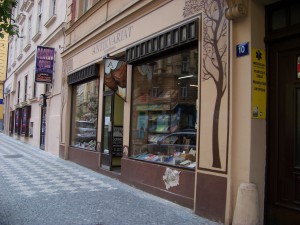 At least 70% of the antiquarian book dealers currently have their own web pages, and some of these only accept online bookings! The result of changing times is the price that you can often go to the library to ask for a title, and be told to refer to the web pages in response.
At least 70% of the antiquarian book dealers currently have their own web pages, and some of these only accept online bookings! The result of changing times is the price that you can often go to the library to ask for a title, and be told to refer to the web pages in response.
Whereas once the bookseller was an almost mythical figure, whom we admired for the prodigious memory and the ability to find any title in the disorder of the shop in seconds, today on the other hand, he is a computer semi-expert with basic knowledge of the internet and management of websites.
Editorial production has always adapted to technological progress, and today the debate is about whether in the future we will continue to pick up paper books, or if on the other hand, they will be completely replaced by the E-book. Only time will provide us with an answer, and soon. Yet the charm of the small shop of used books, with its smells and atmosphere, where sometimes you find real bibliographic gems of the past, once thought to be lost forever, will surely remain much longer in the hearts, and memory of many passionate bibliophiles.
by Mauro Ruggiero
